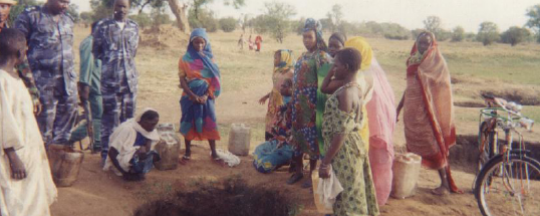The Sudan Armed Forces is redeploying forces to a disputed area claimed by Western Bahr el Ghazal state, according to a southern official.
Miskin Musa, a border advisor for the state government, told Radio Tamazuj that the Sudan Armed Forces is redeploying its forces to villages in the disputed Kafia Kinji enclave, which borders Central Africa to the west and South Darfur to the north.
“SAF is redeploying its troops in Kafia Kinji, Hofrat an Nahas, Kafia Debi and many other areas in Raja County,” said Miskin Musa.
Miskin claimed that “There are many battalions there and the Sudan government is still redeploying more, even to areas that were not formerly armed.”
The official’s remarks suggest that South Sudan has not tested the latest movements by force, not since April when the army claimed to have repulsed an attack on Sere Malaga on the eastern edge of the Kafia Kinji enclave. Wet season road conditions since then anyway would have made difficult the passage of arms and men.
Unlike Abyei, which earned special status in the Comprehensive Peace Agreement putting it on track for a referendum on separation, Kafia Kinji went unmentioned. The area instead is subject to the principle of border demarcation along the 1956 provincial boundary. According to Miskin, Sudan disregards the will of the local population and will try to keep the area no matter what. “Whatever happens or is said by the southerners, Khartoum is not concerned about it,” he asserted.
Miskin opposes the cross-border tribal conference planned in Raja County, which has the backing of the organization Concordis International. “The immediate thing now is border demarcation of Sudan and South Sudan and the conferences may be later,” he explained. The officer argued that since Khartoum cannot be trusted for what it says, a tribal conference may not work now. He recalled that in the past, tribes from Sudan and South Sudan were having no problems among themselves but now the government in Khartoum even requires herders to have permits to graze in the area.
It has been noted elsewhere that Kafia Kinji area belonged to Bahr el Ghazal province under the Anglo-Egyptian colonial government until it was transferred to the administration of Darfur in 1960. The area, which contains a wildlife preserve and several mines, is about the size of Puerto Rico. The population is sparse because of tsetse fly infestation, the legacy of slaving, and British efforts in the last century to keep the area a cultural no man’s land.
Photo: Police and villagers in Kafia Kinji (Radom Biosphere Wildlife Report, 2005)




